Leading The Way Among Florida Biomedical Waste Companies
Save up to 10% on Biomedical Waste Disposal in Florida with SaniTrax
SaniTrax LLC is committed to the safety, compliance, and environmentally responsible biomedical waste management. This industry is highly regulated, and it is important to have a company that is knowledgeable about local, state, and federal regulations. That's what makes SaniTrax one of the leading biomedical waste companies.
Containers for Biomedical Waste Management
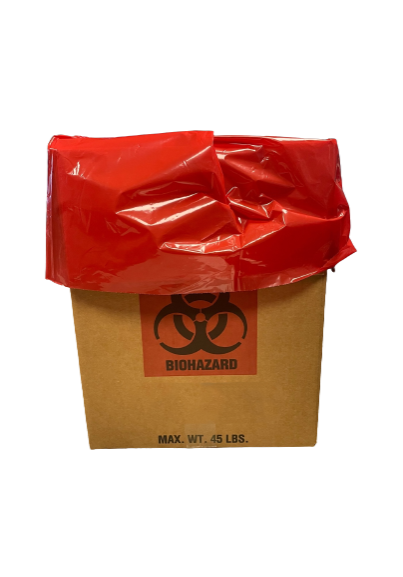
15 Gallon Disposal Box
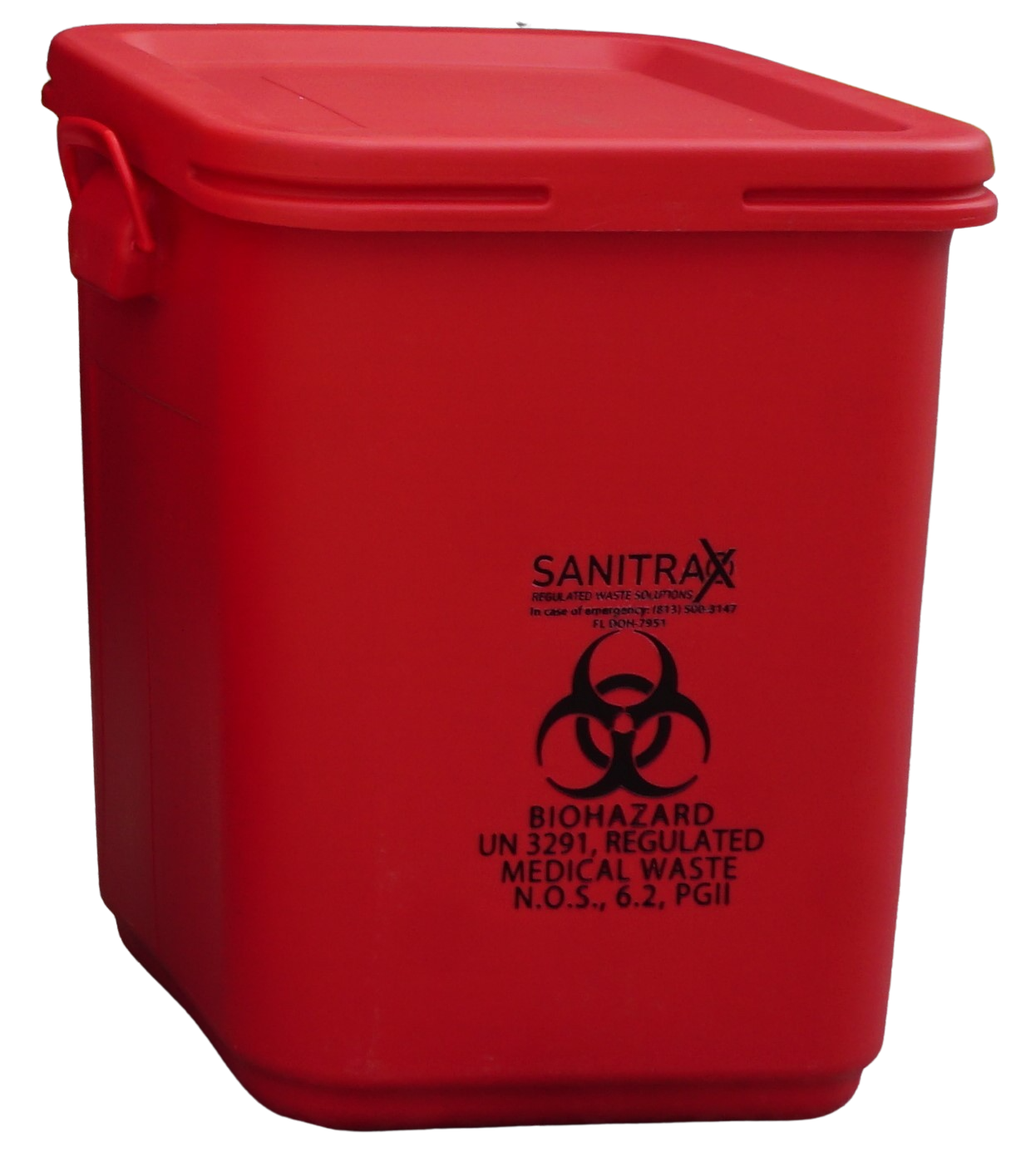
28 Gallon Reusable Container
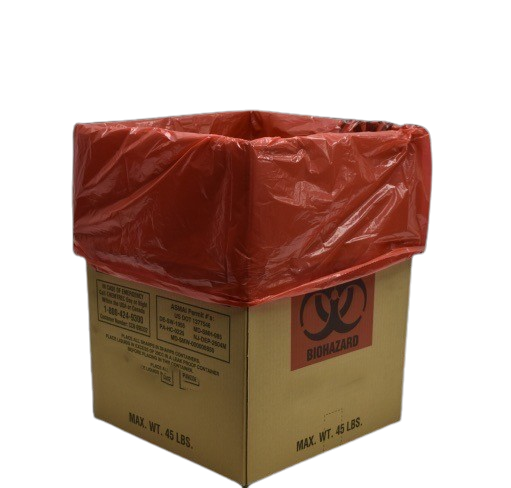
32 Gallon Disposable Box
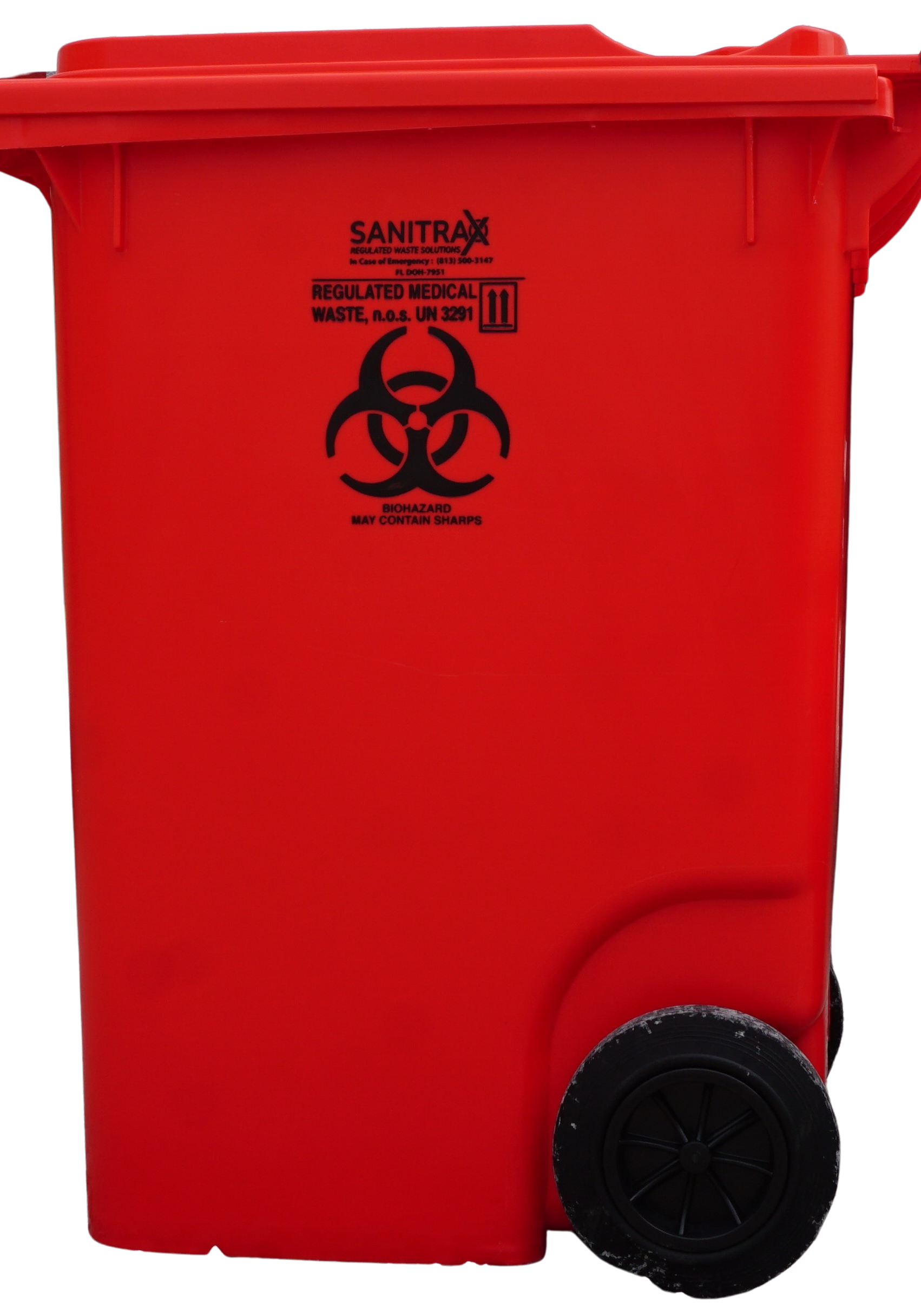
96 Gallon Container
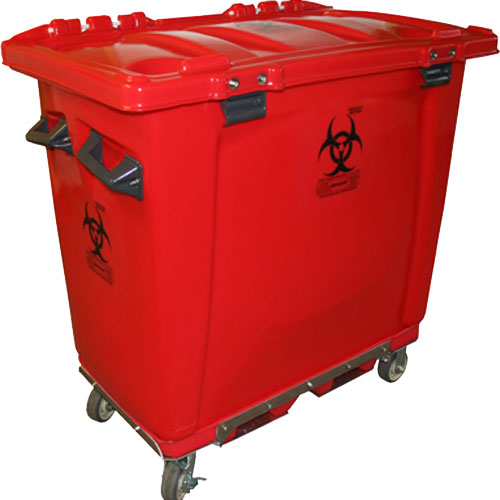
200 Gallon Reusable Container
We provide US DOT compliant containers and liners as well as preprinted labels. Regulated Medical Waste Generators and biomedical waste companies in Florida must label the container liners to comply with Florida Department of Health Regulations.
What are sharps?
Sharps waste is a form of biomedical waste that has a sharp edge or point. This means sharps are not only needles; they are anything that can breach the skin or any regulated medical waste packaging.
Sharps include but are not limited to: needles, syringes, broken glass, scalpels, culture slides, culture dishes, broken capillary tubes, broken rigid plastic, and exposed ends of dental wires.
According to the Florida Department of Health (64E-16.002), Sharps are defined as: Objects capable of puncturing, lacerating, or otherwise penetrating the skin.
What is Biomedical Waste?
A waste or reusable material known to contain or suspected to contain an infectious substance in Risk Group 2 or 3 and generated in the diagnosis, treatment, or immunization of human beings or animals; research on the diagnosis, treatment, or immunization of human beings or animals; or the production or testing of biological products.
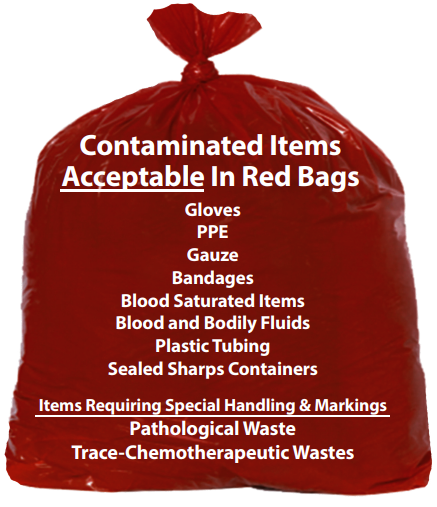
It is waste generated from medical procedures, including any items saturated with blood or other potentially infectious materials (OPIM), such as bandages, gauze, or PPE, that are considered regulated medical waste or biomedical waste.
According to the Florida Department of Health (64E-16.002), Biomedical Waste is defined as: Any solid or liquid waste that may present a threat of infection to humans, including non-liquid tissue, body parts, blood, blood products, and body fluids from humans and other primates; laboratory and veterinary wastes which contain human disease-causing agents; and discarded sharps.
What is Trace Chemotherapy Waste?
Trace chemotherapy wastes are materials that have come into contact with or may contain only a residual amount of a chemotherapy agent. This includes empty drug bottles or IV bags, as well as gloves and other Personal Protective Equipment (PPE) used during the administration of chemotherapy drugs. Learn more about our pharmaceutical waste disposal services.
What is Pathological Waste?
Pathological waste is commonly found in hospitals, veterinary centers, medical laboratories, clinics, surgery centers, and other healthcare facilities. Pathological waste consists of human or animal body parts, organs, tissues, and surgical specimens (decanted formaldehyde, formalin, or other preservatives).
Frequently Asked Questions About Biomedical Waste in Florida
Serving Florida Healthcare Providers — Find Your City
Looking for reliable biomedical waste disposal in Florida for your area? SaniTrax LLC proudly serves healthcare facilities throughout Central Florida. Explore our service areas to see if we cover your location.
